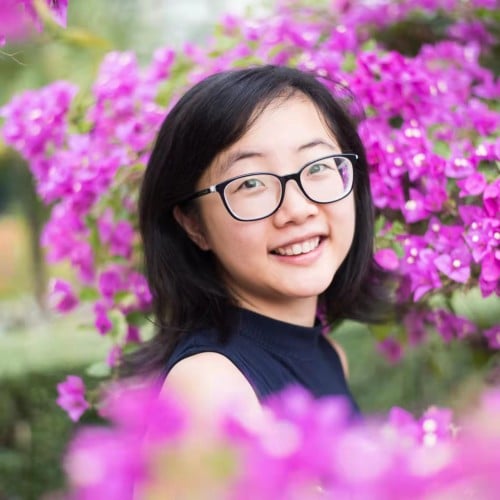
SOTY 2017: how newspapers can help you become a Linguist category award winner
The judges of the Student of the Year – Linguist award are looking for all-rounders who can demonstrate authenticity, confidence, and be engaging

Having a good command of English, Cantonese, or Putonghua isn’t enough to become a finalist for the Student of the Year (SOTY) – Linguist award; candidates have to prove they have completely mastered a way of expressing their language skills.
“Being a part of SOTY is a yearly highlight for me,” said Young Post editor, Susan Ramsay.
Ramsay has been a judge in the English category ever since the prestigious competition was relaunched in 2013. As an editor, she said she particularly values a student who can demonstrate decent writing skills.
“One of the key things I look out for [in a SOTY winner] is that they have not just done debating or public speaking, but also some form of writing, preferably that’s published. It’s one thing to speak a language well, but quite another to be able to write in it, too.”
That is not all the judges will be looking for, either, as Young Post found out when we spoke to Professor Tong Ho-kin, acting dean of the Education University of Hong Kong’s faculty of humanities, and Professor A. Lin Goodwin, dean of the University of Hong Kong’s faculty of education.
For Goodwin, who is a new judge this year in the English category of the award, finalists will need to deliver a sense of who they are as a person, or what they love, through their work.
“I want to learn about students’ interests and talents,” she said. “I’m looking for authenticity, for individuals to express themselves in ways that ring true, that tell a story [about] themselves. Those are always the most compelling kinds of presentations.”
Tong, who is a judge for both the Cantonese and Putonghua categories, said he’ll be looking for someone can prove they can apply their knowledge of their chosen language to what they do.
“For example, they need to apply [their] writing skills to composing a poem, fiction or short story; or make use of their knowledge of speech to deliver a presentation.”
That is not all, though, as many of the finalists will already be able to demonstrate these skills. To truly be the best of the best, Tong added that the winner needs to be well prepared, confident, and have read newspapers and be able to apply what they learn to what’s going on in Hong Kong.
Accurate pronunciation, correct intonation, proficiency in the language, and good general knowledge of Hong Kong today are what matters, he said, not whether they are native or second language speakers.
“It takes a combination of many things [to win],” Goodwin added. “Technical things have to be in place – for example, if you’re speaking, you should be clear, enunciate well, have a good voice, etc. Beyond that, there are certain qualities that make a difference.
“I’m looking for the ability to be a good storyteller, and to engage the audience and to pull people in. Writing and speaking are intimate activities. What you’re trying to do is to embrace folks in the experience that you’re sharing, and that’s what I’m looking for.”
So what can students do to improve their language skills to get to this stage?
Tong said it takes time, so students need to have a study plan, as well as a strong motivation to excel in their chosen language. Goodwin added that it’s important to do a lot of writing, speaking, reading, and listening. If you want to improve your language skills, you need to use the language every day, she said.
“It’s important to study, but beyond learning about something, you have to use it, in many [situations].” Goodwin added that students also have to take some risks and not just stay at a level that they feel confident about.
The judges’ advice for all Linguist Award hopefuls is to not worry too much. “ Just relax, be confident and well prepared,” said Tong.
“Fully enjoy the experience,” Goodwin agreed. “You want to be on your toes, but you don’t want to be so worried that you become frozen or stiff. Think of us as people you want to talk to, not people who are making judgments.”
The Student of the Year Awards competition is organised by South China Morning Post and Young Post and sponsored by The Hong Kong Jockey Club.
Edited by Ginny Wong
